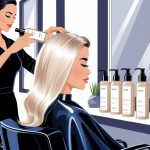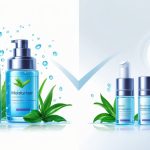Surprising Perfume Habits Quietly Affecting Workplace First Impressions
Navigating Scent Sensitivities in Professional Settings
And then there’s the allergy circus. Someone sprays new cologne at their desk, half the team’s sniffling, nobody says a word, and I’m Googling “can you overdose on antihistamines at work.” It’s not about banning everything—just, why do my sinuses hate me every time someone tries a new “signature scent”?
Identifying Colleagues’ Sensitivities
Every office has this underground network—people whispering about unscented hand soap or plotting revenge after that citrus aftershave incident. Nobody’s putting up allergy warnings, but honestly, asthma triggers are everywhere. One HR rep told me, “Chemical sensitivity’s a disability,” and I thought she was exaggerating, but then I read about McBride v. the City of Detroit. Turns out, fragrance can literally get you ADA accommodations.
Some folks just disappear after someone douses themselves in vanilla spray. I’ve spent entire meetings clutching tissues, wishing for a fragrance-free zone. Up to 30% of adults say they’re chemically sensitive, but the etiquette is still a mess. You want to ask, “Did your hair gel just make me wheeze?” but instead, you just wave a notepad and hope for the best.
Respectful Use in Shared Spaces
And why is it that we get militant about peanuts but can’t do the same for fragrances? Management sends out “gentle reminders,” and then nothing changes. My favorite open-plan office turned into a perfume testing ground—sandalwood one week, grandma rose the next. My friend with asthma literally sat in the parking lot until the air cleared. Windows? Forget it.
It’s not hard. Put a fragrance-free note in the onboarding packet, offer unscented cleaning stuff. Most people ignore it, but it’s not exactly high effort. I keep hypoallergenic wipes at my desk and swap out citrus air fresheners when no one’s looking. Accessibility guidelines say even tiny changes help, but getting people to actually care is like herding cats. Or, I guess, organizing a fire drill nobody wants.
Understanding Allergies and Asthma Related to Fragrance
Still can’t shake that headache from last week’s boardroom. Someone’s new cologne, probably. Even the tiniest whiff can mean sinus chaos, shortness of breath, or a full-on medical situation for people like me. And you can’t exactly avoid it, not with all the policies and air fresheners floating around.
Recognizing Allergic Reactions
Step into the elevator, eyes start watering, throat gets scratchy—classic. It’s not just me; I see others sneezing and rubbing their eyes too. Dr. Kent Woo, who’s some clinical immunologist, says reactions can be anything from rashes to full-on breathing problems. My skin hates synthetic musks and essential oil blends. One wrong move and I’m stuck with a scent that lingers all day.
Asthma UK says up to 2.5 million people in the UK blame fragrances for their asthma or allergy triggers, but honestly, I bet it’s more. People just shrug off symptoms or call it “dust.” And offices don’t have warning labels, which is wild. HR wants a doctor’s note, and suddenly you’re in a week-long debate about coconut-scented lotion and someone’s sweater.
Fragrance and Asthma Triggers
It’s not just allergies. Fragrance-induced asthma is real—“scent-sensitive asthma,” if you want the technical term. Perfumes, air fresheners, those “wellness” diffusers—they all make things worse for some people. Over a quarter of work-related asthma cases in California are from fragrances, according to the California Department of Public Health. Seems absurd, but here we are.
Open-plan offices? Total wild west. Nobody controls what others spray. If you’ve got allergic rhinitis, good luck—“Don’t sit near the bathroom,” my nurse friend told me, and she was right. I lost track of how many meetings got delayed because someone needed their inhaler. Meanwhile, someone else is raving about “layering scents for confidence.” Just open a window. That does way more than any “fragrance policy” email.
Best Practices for Applying Perfume at Work
You know what’s embarrassing? Becoming “the cologne guy.” People notice bad scent habits, but nobody says a thing. I had to learn the hard way: don’t overdo it, and pick scents that don’t punch people in the nose.
Choosing Subtle Perfumes
Did I think sandalwood and oud would make me look cool? Yeah. Was I wrong? Definitely. Anything labeled “intense” is a trap. Best advice I ever got: use lighter eau de toilette or cologne for work; save the heavy stuff for after-hours or, I guess, if you’re immune to subtlety.
Fresh, clean scents—citrus, gentle florals, green tea, vetiver—don’t usually get you side-eye in small spaces. A fragrance consultant I trust told me that, and I believe her. Honestly, I keep a table on my phone just to keep track:
| Scent | Day at Work? | Comments |
|---|---|---|
| Citrus | ✅ | Safe bet |
| Vanilla | ❌ | Too sweet, too much |
| Woody | ⚠️ | Only the lightest |
| Patchouli | ❌ | Meeting killer |
| Green Tea | ✅ | Works everywhere |
If I forget, a dirty look from the next cubicle usually reminds me.
Application Techniques for the Office
Nobody tells you this, but spraying perfume on your clothes is a rookie mistake—hello, stains. I got laughed at by a perfume chemist for the old “cloud and walk-in” move. Stick to pulse points: wrists, inside elbows, neck, behind ears. And apparently, perfume lasts longer on moisturized skin—learned that after too many failed attempts. Google it. It’s true.
Don’t blast yourself before a meeting in a tiny room. On big office days? I never reapply. Everyone says “less is more,” and if I’m paranoid it’s faded, I’ll ask someone outside my scent bubble for a sniff-check. Awkward, but less awkward than someone hacking up a lung.
Sometimes I’ll dab a little essential oil on the back of my hand for stress. Lasts an hour, doesn’t choke the hallway, and nobody’s staged an intervention yet (Cubicle Therapy).



